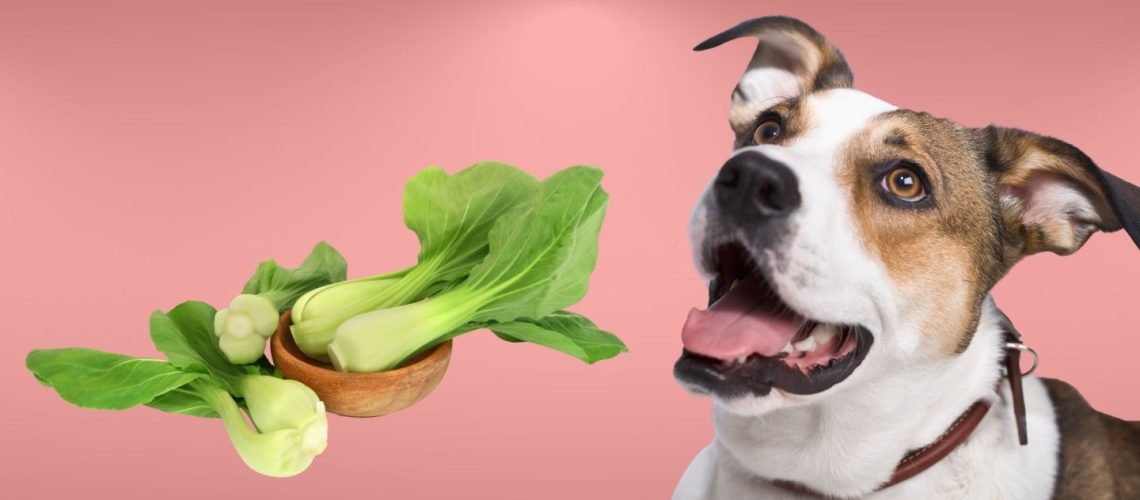The short answer is yes, dogs can eat bok choy. Bok choy, also known as Chinese cabbage, is a nutritious vegetable that can be a healthy addition to a dog's diet in moderation. However, it is important to feed bok choy to your dog in the right way and in the right amount to avoid any potential gastrointestinal issues.
Nutritional Benefits of Bok Choy for Dogs
Bok choy is a good source of vitamins and minerals, including vitamins A, C, and K, as well as calcium and iron. These nutrients can support a dog's overall health and well-being. Additionally, bok choy is low in calories and contains dietary fiber, which can aid in digestion.
How to Feed Bok Choy to Your Dog
When feeding bok choy to your dog, it is important to cut the vegetable into small pieces to avoid any choking hazards. Bok choy can be fed to your dog raw or cooked, but make sure it is thoroughly washed to remove any dirt or pesticides.
Portion Size
When it comes to portion size, it is important to feed bok choy to your dog in moderation. Bok choy should only make up a small portion of your dog's diet, as too much of any one food can lead to gastrointestinal issues. A good rule of thumb is to limit bok choy to no more than 10% of your dog's daily caloric intake.
Potential Side Effects of Feeding Bok Choy to Dogs
While bok choy is generally safe for dogs to consume, there are a few potential side effects to be aware of, including:
Gastrointestinal Issues
Some dogs may experience gastrointestinal issues such as diarrhea, gas, or stomach upset if they consume too much bok choy. To avoid these issues, it is important to introduce bok choy gradually and monitor your dog's reaction.
Choking Hazards
As mentioned earlier, it is important to cut bok choy into small pieces before feeding it to your dog to reduce the risk of choking.
Oxalates
Bok choy contains oxalates, which can contribute to the formation of kidney stones in some dogs. If your dog has a history of kidney stones, it is best to consult with your veterinarian before introducing bok choy to their diet.
Alternatives to Bok Choy for Dogs
If you are looking for other healthy vegetables to add to your dog's diet, consider the following alternatives:
Carrots
Carrots are a good source of vitamins and minerals, and they can provide a satisfying crunch for dogs who enjoy chewing.
Green Beans
Green beans are low in calories and provide a good source of fiber, making them a healthy addition to your dog's diet.
Spinach
Spinach is rich in vitamins and minerals, but it should be fed in moderation due to its high oxalate content.
Tips for Feeding Vegetables to Your Dog
When introducing new vegetables to your dog's diet, keep these tips in mind:
Introduce Vegetables Gradually
Introduce new vegetables gradually to your dog's diet to avoid any gastrointestinal issues.
Mix Vegetables with Your Dog's Regular Food
To make the vegetables more appealing, try mixing them with your dog's regular food.
Don't Overload Your Dog's Diet with Vegetables
While vegetables can provide valuable nutrients, they should not make up the majority of your dog's diet. Instead, focus on providing a balanced diet that meets all of your dog's nutritional needs.
Consult with Your Veterinarian
As always, it is important to consult with your veterinarian before making any changes to your dog's diet. They can provide guidance on the appropriate types and amounts of vegetables to feed your dog based on their specific needs and health conditions.
Conclusion
In conclusion, bok choy can be a healthy and nutritious addition to a dog's diet. However, it is important to feed it in moderation and in the right way to avoid any potential gastrointestinal issues. Always consult with your veterinarian before introducing any new foods to your dog's diet.


























